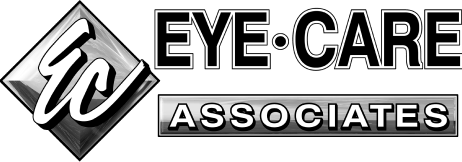Eyecare
We care about your eye health and your family as well
Presbyopia
What is Presbyopia?
A loss of flexibility in the crystalline lens occurs slowly and universally with time. Eventually this stiffening of the lens results in a decreased ability to focus on objects closer to the eye. The term for this is presbyopia, and classically this is when a bifocal or reading prescription is needed. In the case of myopia, the eye may be set to naturally focus this closer target distance, allowing for adequate near vision with the removal of distance correction.
Regardless of initial refractive error, presbyopia will affect everyone. Those who are naturally myopic or nearsighted may have fewer early issues with this than those who have a low hyperopic (or “farsighted”) prescription. Often the onset of presbyopia may present the first symptomatic visual concern for those with hyperopia. This most often occurs in the mid to late 40s.


A variety of options are available for the correction of presbyopia. If spectacle correction is preferred, a lined bifocal or progressive design can be used to provide distance correction in the top portion of the lens and either a single near focus point in the lower part of the lens, or a slow progression into intermediate and near powers. Customized spectacle lenses can be designed to best fit a wide range of daily demands including computer use.
If contact lenses are desired, the options continue to improve. Correction of distance can be maintained with contact lenses for distance only while wearing single vision reading glasses when needed. Options to rely primarily on contact lenses for both distance and near have expanded. Monovision correction is the correction of the dominant eye for distance, and the non-dominant eye for near. Many people enjoy glasses-free function with this modality, but it has drawbacks when it comes to binocularity as the eyes are split between distance and near acuity. Multifocal contact lenses have recently become available in both spherical and astigmatic correction. These lenses attempt to correct multiple distances in both eyes and leave binocular vision intact. Some degradation of distance vision can occur, but many people are able to get excellent distance and near vision with this option as well.
The newest option in the toolkit for managing presbyopia is a prescription pharmaceutical drop. This drop (Vuity) was FDA approved in late 2021 and works by increasing the depth of focus of the eye by decreasing the size of the pupil.
In addition to the above solutions for presbyopia, which can be used both before and after cataract surgery, there is an option to help correct presbyopia and obtain good distance and near vision surgically. When cataracts are removed, a multifocal lens implant can be used to replace the clouded crystalline lens. These lenses act similarly to multifocal contact lenses by focusing light for both distance and near.
Presbyopia and its progressive onset can be very frustrating and disruptive to normal day to day function. This is often especially true for those who have previously not required correction for any distance. Many options are available to address this concern. Your provider can help determine which option may be the most appropriate for your prescription, lifestyle, and visual demands.
Contact Us to schedule your appointment
Call us on (406) 535-2020 or complete the inquiry form to schedule your appointment or to learn more about how we help our patients.


 Call us at
Call us at